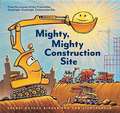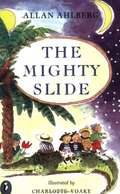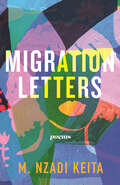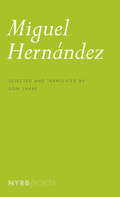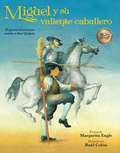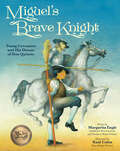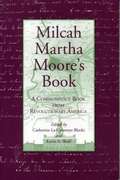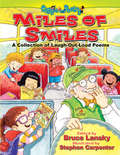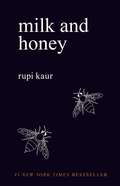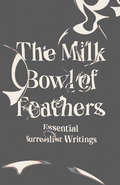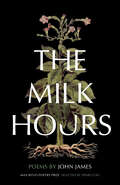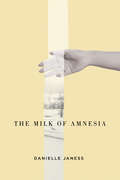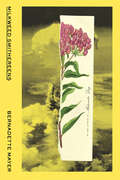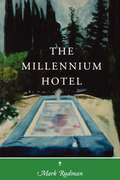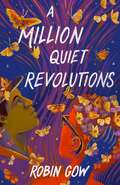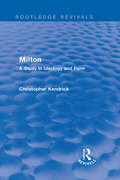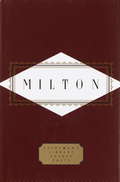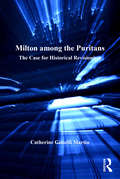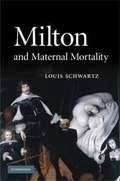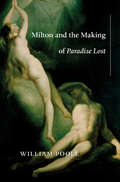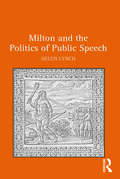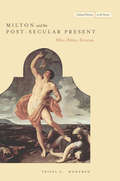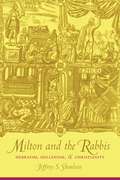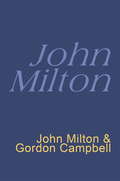- Table View
- List View
Mighty, Mighty Construction Site
by Sherri Duskey Rinker Tom LichtenheldAt last--here from the team behind the beloved international bestseller comes a companion to Goodnight, Goodnight, Construction Site. All of our favorite trucks are back on the construction site--this time with a focus on team-building, friendship, and working together to make a big task seem small! Down in the big construction site, the crew faces their biggest job yet, and will need the help of new construction friends to get it done. Working as a team, there's nothing they can't do! The millions of fans of Goodnight, Goodnight, Construction Site are in for a mighty good time!
The Mighty Slide
by Allan Ahlberg‘This is the storyOf Alison Hubble,Who went to bed single,And woke up double.’Here, in verse, are the hilariously original stories of a mighty slide, a man who fought crocodiles, a girl who doubled, a couple of baby skinners and a thing that lived under a school. A wonderful collection from Allan Ahlberg, author of ‘Please Mrs Butler, Woof!’ and ‘Happy Families’, illustrated throughout with delightful drawings by Charlotte Voake.
Migration Letters: Poems (Raised Voices #5)
by M. Nzadi KeitaA poetry collection that reflects on intimate aspects of Black history, culture, and identity, revealing an uncommon gaze on working-class Philadelphia from the 1960s to the present dayIn 55 poems, Migration Letters straddles the personal and public with particular, photorealistic detail to identify what, over time, creating a home creates in ourselves. Drawn from her experiences of being born in Philadelphia into a Black family and a Black culture transported from the American South by the Great Migration, M. Nzadi Keita&’s poetry sparks a profoundly hybrid gaze of the visual and the sensory. Her lyrical fragments and sustained narrative plunge into the unsung aspects of Black culture and explore how Black Americans journey toward joy.Propelled by the conditions that motivated her family&’s migration north, the poems pull heavily from Keita&’s place in her family, communities, and the world at large. They testify to her time and circumstances growing up Black in Philadelphia on the periphery of the civil rights and Black Power movements. Each poem builds upon an inheritance of voices: a panoramic perspective of an Easter Sunday service in a Black church gives way to an account of psychic violence in a newly integrated school; the collective voices of a beauty salon&’s patrons fragment into memories of neighborhoods in North Philadelphia that have faded over time.Migration Letters strives to tell a story about Black people that radiates across generations and testifies to a world that, as Lucille Clifton wrote, &“has tried to kill [us] and has failed.&” They interrogate how one&’s present begins in the past, what we gain from barriers and boundaries, and what notions of progress energize our journey forward. Keita&’s poems intimately reveal how Black culture can be inherited and built upon complex relationships where love and pain are inextricably linked.
Miguel Hernandez
by Miguel Hernandez Don ShareMiguel Hernández is, along with Antonio Machado, Juan Ramón Jiménez, and Federico García Lorca, one of the greatest Spanish poets of the twentieth century. This volume spans the whole of Hernández's brief writing life, and includes his most celebrated poems, from the early lyrics written in traditional forms, such as the moving elegy Hernández wrote to his friend and mentor Ramon Sijé (one of the most famous elegies ever written in the Spanish language), to the spiritual eroticism of his love poems, and the heart-wrenching, luminous lines written in the trenches of war. Also included in this edition are tributes to Hernández by Federico García Lorca, Pablo Neruda (interviewed by Robert Bly), Rafael Alberti, and Vicente Aleixandre. Pastoral nature, love, and war are recurring themes in Hernández's poetry, his words a dazzling reminder that force can never defeat spirit, that courage is its own reward.
Miguel's Brave Knight: Young Cervantes and His Dream of Don Quixote
by Margarita EngleMiguel de Cervantes Saavedra finds refuge from his difficult childhood by imagining the adventures of a brave but clumsy knight.This fictionalized first-person biography in verse of Miguel de Cervantes Saavedra follows the early years of the child who grows up to pen Don Quixote, the first modern novel. The son of a vagabond barber-surgeon, Miguel looks to his own imagination for an escape from his family's troubles and finds comfort in his colorful daydreams. At a time when access to books is limited and imaginative books are considered evil, Miguel is inspired by storytellers and wandering actors who perform during festivals. He longs to tell stories of his own. When Miguel is nineteen, four of his poems are published, launching the career of one of the greatest writers in the Spanish language.Award-winning author Margarita Engle's distinctive picture book depiction of the childhood of the father of the modern novel, told in a series of free verse poems, is enhanced by Raúl Colón's stunning illustrations. Back matter includes a note from both the author and illustrator as well as additional information on Cervantes and his novel Don Quixote.
Milcah Martha Moore's Book: A Commonplace Book from Revolutionary America
by Catherine La Courreye Blecki Karin A. WulfMilcah Martha Moore lived and flourished in the Philadelphia area during its peak, when it was the center of commerce, politics, social life, and culture in the young republic. A well-educated woman, disowned by her Quaker Meeting for an unauthorized marriage, Moore knew and corresponded with many of the leading lights of her day. From her network of acquaintances, she created a commonplace book, which is published here for the first time. Moore compiled her commonplace book during the American Revolution, carefully selecting works of poetry and prose that she and her friends most enjoyed reading and wanted to remember. <p><p>Contained are 126 works of prose and poetry by at least sixteen different authors, mostly women. Catherine Blecki and Karin Wulf have edited and reproduced the entire collection, adding helpful annotations and interpretive essays that set the collection in historical and literary context. Moore's Book will be a treasure trove for feminist and early American scholars, for it includes two of the most avidly sought-after bodies of writing from British America: sixteen new poems (twenty-four in all) by the Quaker polymath Susanna Wright and a previously lost portion of the journal kept by Elizabeth Graeme Fergusson during her trip to England. There is also a remarkable selection of pieces by Hannah Griffitts, the Quaker moralist and wit who commented on politics, society, and domesticity during the Revolution. Moore also included writings by Benjamin Franklin, Patrick Henry, and Samuel Fothergill. While scholars have speculated about the extent to which elite women exchanged ideas through reading and writing during this period, Moore's Book is the richest surviving body of evidence revealing the nature and substance of women's intellectual community in British America.
Miles of Smiles: A Collection of Laugh-Out-Loud Poems (Giggle Poetry)
by Bruce Lansky Stephen CarpenterYou'll Find a Smile on Every Page of this Book!Thousands of elementary-school students helped Bruce Lansky, "The King of Giggle Poetry," pick the poems by Kenn Nesbitt, Joyce Armor, Joan Horton, Eric Ode, Dave Crawley, Ted Scheu, and other poets included in this book. If these poems don't put a smile on your face, Stephen Carpenter's hilarious illustrations surely will!
milk and honey
by Rupi Kaur<P>milk and honey is a collection of poetry and prose about survival. About the experience of violence, abuse, love, loss, and femininity. <P>The book is divided into four chapters, and each chapter serves a different purpose. <br>Deals with a different pain. <br>Heals a different heartache. <P>milk and honey takes readers through a journey of the most bitter moments in life and finds sweetness in them because there is sweetness everywhere if you are just willing to look. <P><b>A New York Times Bestseller</b>
The Milk Bowl of Feathers: Essential Surrealist Writings
by Mary Ann CawsAn exciting new collection of the essential writings of surrealism, the European avant-garde movement of the mind’s deepest powers Originating in 1916 with the avant-garde Dada movement at the famous Café Voltaire in Zurich, surrealism aimed to unleash the powers of the creative act without thinking. Max Ernst, André Breton, Tristan Tzara, Paul Éluard, Philippe Soupault, and Louis Aragon created a movement that spread wildly to all corners of the globe, inspiring not only poetry but also artists like Joan Miro and René Magritte and cinematic works by Antonin Artaud, Luis Bunuel, and Salvador Dalí. As the editor, Mary Ann Caws, says, “Essential to surrealist behavior is a constant state of openness, of readiness for whatever occurs, whatever marvelous object we might come across, manifesting itself against the already thought, the already lived.” Here are the gems of this major, mind-bending aesthetic, political, and humane movement: writers as diverse as Aragon, Breton, Dalí, René Char, Robert Desnos, Mina Loy, Paul Magritte, Alice Paalen, Gisele Prassinos, Man Ray, Kay Sage, and Elsa von Freytag-Loringhoven are included here, providing a grand picture of this revolutionary movement that shocked the world.
The Milk Hours: Poems
by John JamesWinner of the Max Ritvo Poetry Prize: A &“luminous [and] memorable&” debut that searches widely to ask what it means to exist in a state of loss (Publishers Weekly). &“We lived overlooking the walls overlooking the cemetery.&” So begins the title poem of this collection, whose recursive temporality is filled with living, grieving things, punctuated by an unseen world of roots, bodies, and concealed histories. Like a cemetery, too, The Milk Hours sets unlikely neighbors alongside each other: Hegel and Murakami, Melville and the Persian astronomer al-Sufi, enacting a transhistorical poetics even as it brims with intimacy. These are poems of frequent swerves and transformations, which never stray far from an engagement with science, geography, art, and aesthetics, nor from the dream logic that motivates their incessant investigations. While John James begins with the biographical—the haunting loss of a father in childhood, the exhausted hours of early fatherhood—the questions that emerge from his poetic synthesis are both timely and universal: What is it to be human in an era where nature and culture have fused? To live in a time of political and environmental upheaval, of both personal and public loss? How do we make meaning, and to whom—or what—do we turn, when such boundaries so radically collapse? &“A poet of staggering lyricism, intricate without ever obscuring his intent. Quite simply, The Milk Hours announces the arrival of a great new talent in American poetry.&” —Shelf Awareness
The Milk of Amnesia (Hugh MacLennan Poetry Series #55)
by Danielle Janessfire / and water surging on the screen - / since children, metros, planets, beds, and lovers are / so lightly swept away - I must not even breathe. Danielle Janess's debut poetry collection resists the erasing effects of war, nationalism, and forced migration. Following the speaker's arduous relocation to a twenty-first-century Europe still etched with the wounds of the past, the poems take on daring forms and language, becoming theatre, film clips, photographs, and dance, all embodied by a cast of characters marked by the violence of the last century. Arrested in Warsaw within the first twenty days of the Second World War, Janess's maternal grandfather was sent to a Soviet gulag where he survived for three years before joining the Free Polish Army in Russia and later the battle of Monte Cassino in the Italian Campaign. Many of the poems in The Milk of Amnesia grow from the soil of Warsaw and Berlin, where the poet-speaker catapults herself and her young child in an effort to locate and unearth their family inheritance. Drawing from the tradition of poetry of witness, The Milk of Amnesia performs a visionary resistance, lit with signposts in a charged atmosphere. An address to our ongoing struggles with historical memory, these poems act as both artifact of and antidote to our time.
Milkweed Smithereens
by Bernadette MayerA career-spanning bouquet of poems by the peerless and inimitable Bernadette Mayer Milkweed Smithereens gathers lively, wickedly smart, intimate, and indelible Bernadette Mayer poems: the volume ranges from brand-new nature poems, pastiches, sequences, epigrams, and excerpts from her Covid Diary and Second World of Nature to early poems and sonnets found in the attic or rooted out in the UC San Diego archive. The world of nature and the pandemic loom large, as in her “The Lobelias of Fear”: …but how will we, still alive, socialize in the winter? wrapped in bear skins we’ll sit around pot-bellied stoves eating the lobelias of fear left over from desperation, last summer’s woodland sunflowers and bee balm remind us of black cherries eaten in a hurry while the yard grows in the moonlight shrinking like a salary …
The Millennium Hotel: The Rider Quintet, vol. 2 (Wesleyan Poetry Series)
by Mark RudmanIn this captivating sequel to his award-winning Rider, Mark Rudman reclaims a sacred space for poetry. The Millennium Hotel is a world of dazzling imitations, a vast casino where personal narrative is recognized as a fiction and death always holds the winning hand. Rudman asks, "How not to be seduced by the new?" as he illustrates the intimate ways in which facade, gender, and memory inform both our private and public realms.Here the interlocutor's voice shifts and freely crosses gender lines, especially in poems about early erotic experience. Mothers, daughters, lovers, and wives are passionately engaged. Its inclusiveness and wide range of tonal registers enable The Millennium Hotel to blend seamlessly the intimate, the social, the comic, and the apocalyptic. The book moves like a series of sonatas, melding childhood, the diaspora, and eros.
A Million Quiet Revolutions
by Robin GowRobin Gow's A Million Quiet Revolutions is a modern love story, told in verse, about two teenaged trans boys who name themselves after two Revolutionary War soldiers. A lyrical, aching young adult romance perfect for fans of The Poet X, Darius the Great is Not Okay, and Aristotle and Dante Discover the Universe.For as long as they can remember, Aaron and Oliver have only ever had each other. In a small town with few queer teenagers, let alone young trans men, they’ve shared milestones like coming out as trans, buying the right binders—and falling for each other.But just as their relationship has started to blossom, Aaron moves away. Feeling adrift, separated from the one person who understands them, they seek solace in digging deep into the annals of America’s past. When they discover the story of two Revolutionary War soldiers who they believe to have been trans man in love, they’re inspired to pay tribute to these soldiers by adopting their names—Aaron and Oliver. As they learn, they delve further into unwritten queer stories, and they discover the transformative power of reclaiming one’s place in history. Further reading on trans history is included in backmatter.
Milosz: A Biography
by Andrzej FranaszekAndrzej Franaszek’s award-winning biography of Czeslaw Milosz—winner of the Nobel Prize in Literature—recounts the poet’s odyssey through WWI, the Bolshevik revolution, the Nazi invasion of Poland, and the USSR’s postwar dominance of Eastern Europe. This edition contains a new introduction by the translators, along with maps and a chronology.
Milton: A Study in Ideology and Form (Routledge Revivals)
by Christopher KendrickFirst published in 1986, this title critiques the canonical view of Milton as an isolated Great Man, and reassesses the impact of the Puritan Revolution on two of his major works: the Areopagitica and Paradise Lost. The study focuses on the emergence of a discreet ethical framework of thought within the dominant theological code of these two works, arguing that this framework – integral to Protestantism – is also crucial to the construction of subjectivity under capitalism. Through an analysis of the rhetorical strategies of the Areopagitica and the generic composition of Paradise Lost, Christopher Kendrick demonstrates that Milton’s ‘individualism’ both affirms the success of the Puritan Revolution and also exposes the contradictions between the capitalist subject’s ethical freedom and the world of necessity of which that freedom is part.
Milton: Poems
by John MiltonThe Everyman's Library Pocket Poets hardcover series is popular for its compact size and reasonable price which does not compromise content. Poems: Milton contains selections from Milton's work, including sonnets, occasional poems, portions of Comus, Samson Agonistes, as well as Books I--XII of Paradise Lost.
Milton among the Puritans: The Case for Historical Revisionism
by Catherine Gimelli MartinSolidly grounded in Milton's prose works and the long history of Milton scholarship, Milton among the Puritans: The Case for Historical Revisionism challenges many received ideas about Milton's brand of Christianity, philosophy, and poetry. It does so chiefly by retracing his history as a great "Puritan poet" and reexamining the surprisingly tenuous Whig paradigm upon which this history has been built. Catherine Martin not only questions the current habit of "lumping" Milton with the religious Puritans but agrees with a long line of literary scholars who find his values and lifestyle markedly inconsistent with their beliefs and practices. Pursuing this argument, Martin carefully reexamines the whole spectrum of seventeenth-century English Puritanism from the standpoint of the most recent and respected scholarship on the subject. Martin also explores other, more secular sources of Milton's thought, including his Baconianism, his Christian Stoic ethics, and his classical republicanism; she establishes the importance of these influences through numerous direct references, silent but clear citations, and typical tropes. All in all, Milton among the Puritans presents a radical reassessment of Milton's religious identity; it shows that many received ideas about the "Puritan Milton" are neither as long-established as most scholars believe nor as historically defensible as most literary critics still assume, and resituates Milton's great poems in the period when they were written, the Restoration.
Milton and Maternal Mortality
by Louis SchwartzAll too often, childbirth in early modern England was associated with fear, suffering and death, and this melancholy preoccupation weighed heavily on the seventeenth-century mind. This landmark study examines John Milton's life and work, uncovering evidence of the poet's engagement with maternal mortality and the dilemmas it presented. Drawing on both literary scholarship and up-to-date historical research, Louis Schwartz provides important new readings of Milton's poetry, including Paradise Lost, as well as a wide-ranging survey of the medical practices and religious beliefs that surrounded the perils of childbirth. The reader is granted a richer understanding of how seventeenth-century society struggled to come to terms with its fears, and how one of its most important poets gave voice to that struggle.
Milton and the Making of Paradise Lost
by William Poole&“An authoritative, and accessible, introduction to Milton&’s life and an engaging examination of the process of composing Paradise Lost&” (Choice). In early 1642 Milton promised English readers a work of literature so great that &“they should not willingly let it die.&” Twenty-five years later, the epic poem Paradise Lost appeared in print. In the interim, however, the poet had gone totally blind and had also become a controversial public figure―a man who had argued for the abolition of bishops, freedom of the press, the right to divorce, and the prerogative of a nation to depose and put to death an unsatisfactory ruler. These views had rendered him an outcast. William Poole devotes particular attention to Milton&’s personal life: his reading and education, his ambitions and anxieties, and the way he presented himself to the world. Although always a poet first, Milton was also a theologian and civil servant, vocations that informed the composition of his masterpiece. At the emotional center of this narrative is the astounding fact that Milton lost his sight in 1652. How did a blind man compose this intensely visual work? Poole opens up the world of Milton&’s masterpiece to modern readers, first by exploring Milton&’s life and intellectual preoccupations and then by explaining the poem itself―its structure, content, and meaning. &“Poole&’s book may well become what he shows Paradise Lost soon became: a classic.&” —Times Literary Supplement &“Smart and original . . . Demonstrates with astonishing exactitude how Milton&’s life and―most impressively of all―his reading enabled this epic.&” ―The Spectator &“This deeply learned and lucidly written book . . . makes this most ambitious of early modern poets accessible to his modern readers.&” ―Journal of British Studies
Milton and the Politics of Public Speech
by Helen LynchUsing Hannah Arendt’s account of the Greek polis to explain Milton’s fascination with the idea of public speech, this study reveals what is distinctive about his conception of a godly, republican oratory and poetics. The book shows how Milton uses rhetorical theory - its ideas, techniques and image patterns - to dramatise the struggle between ’good’ and ’bad’ oratory, and to fashion his own model of divinely inspired public utterance. Connecting his polemical and imaginative writing in new ways, the book discusses the subliminal rhetoric at work in Milton’s political prose and the systematic scrutiny of the power of oratory in his major poetry. By setting Milton in the context of other Civil War polemicists, of classical political theory and its early modern reinterpretations, and of Renaissance writing on rhetoric and poetic language, the book sheds new light on his work across several genres, culminating in an extended Arendtian reading of his ’Greek’ drama Samson Agonistes.
Milton and the Post-Secular Present
by Feisal G. MohamedOur post-secular present, argues Feisal Mohamed, has much to learn from our pre-secular past. Through a consideration of poet and polemicist John Milton, this book explores current post-secularity, an emerging category that it seeks to clarify and critique. It examines ethical and political engagement grounded in belief, with particular reference to the thought of Alain Badiou, Jacques Derrida, Jürgen Habermas, and Gayatri C. Spivak. Taken to an extreme, such engagement produces the cult of the suicide bomber. But the suicide bomber has also served as a convenient bogey for those wishing to distract us from the violence in Western and Christian traditions and for those who would dismiss too easily the vigorous iconoclasm that belief can produce. More than any other poet, Milton alerts us to both anti-humane and liberationist aspects of belief and shows us relevant dynamics of language by which such commitment finds expression.
Milton and the Rabbis: Hebraism, Hellenism, and Christianity
by Jeffrey ShoulsonTaking as its starting point the long-standing characterization of Milton as a "Hebraic" writer, Milton and the Rabbis probes the limits of the relationship between the seventeenth-century English poet and polemicist and his Jewish antecedents. Shoulson's analysis moves back and forth between Milton's writings and Jewish writings of the first five centuries of the Common Era, collectively known as midrash. In exploring the historical and literary implications of these connections, Shoulson shows how Milton's text can inform a more nuanced reading of midrash just as midrash can offer new insights into Paradise Lost.Shoulson is unconvinced of a direct link between a specific collection of rabbinic writings and Milton's works. He argues that many of Milton's poetic ideas that parallel midrash are likely to have entered Christian discourse not only through early modern Christian Hebraicists but also through Protestant writers and preachers without special knowledge of Hebrew. At the heart of Shoulson's inquiry lies a fundamental question: When is an idea, a theme, or an emphasis distinctively Judaic or Hebraic and when is it Christian? The difficulty in answering such questions reveals and highlights the fluid interaction between ostensibly Jewish, Hellenistic, and Christian modes of thought not only during the early modern period but also early in time when rabbinic Judaism and Christianity began.
Milton: Everyman's Poetry
by John MiltonBest known for his epic masterpiece Paradise Lost, Milton is also a master of subtle lyric harmony. He is one of the greatest writers of the 17th century, and of all time.
